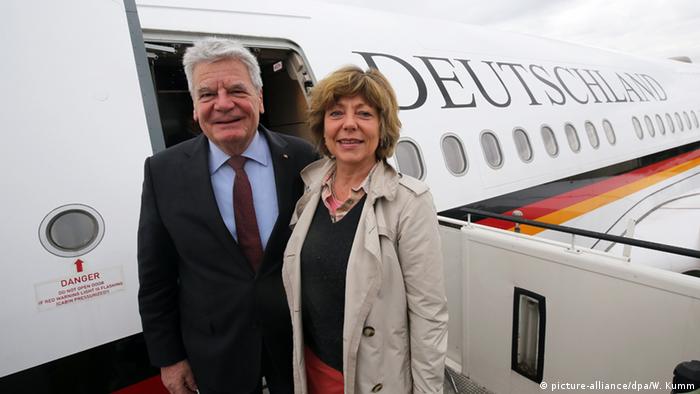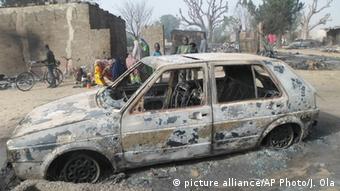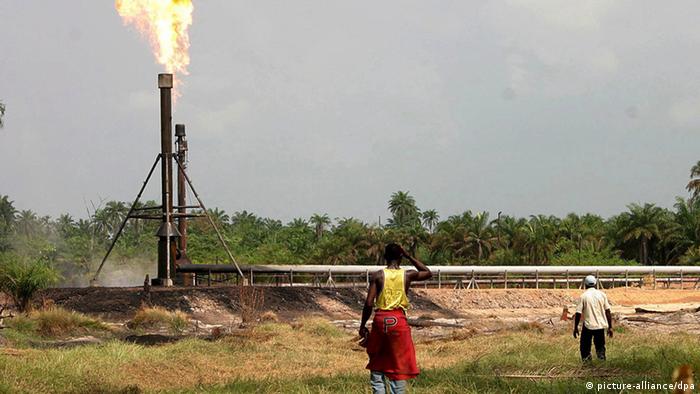..Investors expect growth in Nigerian economy.
Business Pact for Lagos - Frankfurt city signed.
German president Joachim Gauck has begun a five-day trip to Nigeria. He was received by Lagos State governor, Mr Akinwumi Ambode. Mr Gauck is expected to meet President Muhammadu Buhari on Wednesday.
Nigeria is Africa's largest economy. But this economy is struggling on several fronts. Since the drastic fall of oil prices, the country is wrestling with the aftermath and many Nigerians are feeling the impact.The visit is to bring about a quantum leap in establishment and sustenance of businesses in the State.
Investors expect growth in Nigerian economy
The German President who is visiting Nigeria for the first time, scheduled to meet with President Muhammadu Buhari later in the week, expressed confidence in the steps being taken by the present government in the country to address the nation’s challenges.
He said: “I am delighted to be here in Lagos and we in Germany and in Europe are more than aware of the importance of this city as a centre of business, of political development and of creativity in West Africa. At the same time, I am delighted to be here in Lagos on my very first visit to Nigeria. I am happy to learn more and hear more about the successes of this country and the problems it has to tackle.
“My visit is meant to underline the close ties existing between Germany and Nigeria. We have great interest in the area of trade. We in Germany are ready to share our experiences in those areas where you think they might prove helpful or necessary and we are happy to share the experiences we have acquired in fostering security and fostering social security
Investors expect growth in Nigerian economy
The German President who is visiting Nigeria for the first time, scheduled to meet with President Muhammadu Buhari later in the week, expressed confidence in the steps being taken by the present government in the country to address the nation’s challenges.
He said: “I am delighted to be here in Lagos and we in Germany and in Europe are more than aware of the importance of this city as a centre of business, of political development and of creativity in West Africa. At the same time, I am delighted to be here in Lagos on my very first visit to Nigeria. I am happy to learn more and hear more about the successes of this country and the problems it has to tackle.
“My visit is meant to underline the close ties existing between Germany and Nigeria. We have great interest in the area of trade. We in Germany are ready to share our experiences in those areas where you think they might prove helpful or necessary and we are happy to share the experiences we have acquired in fostering security and fostering social security
German President, Joachim Gauck and Governor Akinwunmi Ambode during the visit Governor Ambode, who spoke yesterday, at Lagos House in Ikeja while playing host to the President of Germany, Mr. Joachim Gauck, said he was also favourably disposed to a sister-city relationship between Lagos, the economic capital of Nigeria and Frankfurt, the commercial hub in Germany, especially in the area of financial service sector. He said Lagos, being a commercial hub and the fourth largest economy in Africa with a GDP that is bigger than those of 41 countries in the continent combined, and Frankfurt, a major economic hub in Europe should explore a working relationship in terms of massive financial service that would be mutually beneficial to the two cities. While stating that the parameters for high return on investment abound in Lagos, Governor Ambode said ever since assuming office, he has deliberately put in place measures to encourage foreign investment, adding that he had also invested massively in ensuring the safety of lives and property both of Nigerians in Lagos and foreigners. “One of the things I have tried to do quickly is to uphold the situation that there must be sanctity of law and there must be rule of law. We are strongly committed to the security and judicial sector reforms and we believe that is the only way we can encourage investors to come and do business in Lagos,” the Governor said.
Nigeria's President Muhammadu Buhari is also not to be envied. Nearly a year ago, many Nigerians pinned their hopes on him and overwhelmingly voted him as their new leader.
Nigeria's President Muhammadu Buhari is also not to be envied. Nearly a year ago, many Nigerians pinned their hopes on him and overwhelmingly voted him as their new leader.

Buhari promised to tackle many of the issues facing Nigeria, but he is so far facing stiff challenges
German President, Joachim Gauck and Governor Akinwunmi Ambode during the visit
German President, Joachim Gauck and Governor Akinwunmi Ambode during the visit
Read more at:Buhari pledged to reform the country, which is plagued by massive corruption and religious divides.
But with Nigeria facing enormous challenges including terrorism and the displacement of tens of thousands, the 73 year-old leader is much more of a crisis manager now than a reformer.
When German President Joachim Gauck visits Nigeria, he will have plenty of issues to discuss with President Buhari - issues such as the growing insecurity in southern Libya.
"That [insecurity in southern Libya] is becoming a strategic time bomb for Africa and Europe," Buhari said last week at the European Union parliament.
"The South of Libya has become a thriving bazaar for weapons and therefore threatens the security of the Sahel, West Africa and other regions," he added.
Buhari said the Nigerian militant group, Boko Haram, gets its arms supplies from southern Libya. Boko Haram, which is seeking to create an Islamic caliphate, is also very active in neighboring Niger, Cameroon and Chad.
The Nigerian militant group has sworn allegiance to the so called 'Islamic State', which seems to be gaining grounds in Libya.
The German leadership share similar concerns and interest with the Nigerian leader.
Repatriating refugees and internally displaced persons
Buhari's second major problem is connected to his first. The Boko Haram terror forced more than two million people out of their homes.
The Nigerian army retook control of almost all of the regions previously under Boko Haram, but most of the villages were destroyed in the fight to take back the towns from the insurgents.
The destroyed villages need to be rebuilt and security restored in order to repatriate tens of thousands of refugees and internally displaced persons. Most of the refugees now seek for a better life elsewhere, especially in Europe.
President Buhari recognizes the concerns raised by European politicians about the increasing number of Nigerians seeking asylum in Europe. Lack of economic perspective at home was identified as a key factor forcing many Nigerian to migrate to Europe.
"We are working with our state and local authorities to strengthen our vocational training institutions," Buhari said.
"Apart from that, we want to also diversify our economy. That's the reason we are putting our priority on agriculture and in the mining of raw materials to create more jobs."
Higher spending on broken income
Buhari's ideas, however, cost money. That is Nigeria's third major problem. The fall of the price of crude oil, Nigeria's major export, hit the country hard.
The Nigerian leader introduced a budget that invests largely in agriculture, education, and infrastructure.
But with a reduction of revenue from oil exports, Buhari may need to borrow more money from international lenders to finance his plans.
Buhari is also facing another major challenge from climate change. Due to changes in weather patterns, the huge Lake Chad on the border between Nigeria, Niger, Cameroon and Chad is threatening to dry up.
"Nigeria is watching helplessly as the Lake Chad dries up," Buhari said. "That has monumental consequences for the people there."
"Their livelihoods for generations depend on the resources of Lake Chad. These resources are disappearing and taking away the work for the people," he added.
Buhari hopes to discuss these challenges with German President Gauck during his visit.
Culled from Deutsche Welle, a German media service and Vanguard Nigeria newspaper




No comments:
Post a Comment